Discover Sorry, I Missed This: The Everything Guide to ADHD and Relationships with Cate Osborn
Sorry, I Missed This: The Everything Guide to ADHD and Relationships with Cate Osborn

Sorry, I Missed This: The Everything Guide to ADHD and Relationships with Cate Osborn
Author: Cate Osborn, Understood.org
Subscribed: 149Played: 2,584Subscribe
Share
Description
It can be hard to navigate relationships when you have ADHD. Host Cate Osborn has ADHD, a background in sex education, and a whole lot of questions like “How do I know what I want out of a relationship? How do I remember my friends exist? What can I do to handle conflict better?”
Tune in to Sorry, I Missed This to learn about topics like social skills, boundaries, communication, intimacy, and sex. Join Cate in unpacking the taboo, painful, and often hilarious challenges of being in a relationship when you have ADHD.
Tune in to Sorry, I Missed This to learn about topics like social skills, boundaries, communication, intimacy, and sex. Join Cate in unpacking the taboo, painful, and often hilarious challenges of being in a relationship when you have ADHD.
41 Episodes
Reverse
We’re back with another spicy Reddit Reactions episode!This week, we dive into two wildly relatable ADHD relationship posts: one about a partner claiming “you lost your sparkle” (eye roll), and another spiraling over chores, shame, and new-job burnout. We unpack toxic dynamics, people-pleasing, clutter blindness, and why you’re not weaponizing incompetence. For more on this topic: Listen: ADHD, cheating, and weaponized incompetenceWatch: ADHD and people-pleasingRead: What IS weaponized incompetence?Timestamps:(01:00) A sparkle-stealing husband(04:10) Is it ADHD… or a toxic partner?(08:20) ADHD shame spiral: “I can’t do anything right!”(11:40) Clutter blindness and burnoutFor a transcript and more resources, visit Sorry, I Missed This on Understood.org. You can also email us at sorryimissedthis@understood.org.
Understood.org is a nonprofit organization dedicated to empowering people with learning and thinking differences, like ADHD and dyslexia. If you want to help us continue this work, donate at understood.org/give Hosted by Simplecast, an AdsWizz company. See pcm.adswizz.com for information about our collection and use of personal data for advertising.
Ever said yes to sex a little too fast and regretted it later? Same. Today we’re joined by psychologist and Understood Expert Dr. Ari Tuckman for a candid talk about impulsivity, ADHD, and intimacy. We’ll dig into the messy mix of consent, shame, and emotional regulation. And we’ll talk about how to slow down, stay curious, and find self-compassion after a spicy decision. For more on this topic: Listen: Impulsivity, risky behavior, and obsessions (Chris’ story)Listen: ADHD, loving intensely, and impulsivity (Ange’s story)Timestamps:02:15 How ADHD-related impulsivity can influence sexual decisions08:45 Consent, emotional regulation, and navigating pressure or fear of rejection17:30 Differentiating shame from embarrassment after vulnerable sexual experiences28:10 Strategies for slowing down and gathering insights from experiencesFor a transcript and more resources, visit Sorry, I Missed This on Understood.org. You can also email us at sorryimissedthis@understood.org.
Understood.org is a nonprofit organization dedicated to empowering people with learning and thinking differences, like ADHD and dyslexia. If you want to help us continue this work, donate at understood.org/give Hosted by Simplecast, an AdsWizz company. See pcm.adswizz.com for information about our collection and use of personal data for advertising.
The holidays are here — and so is all the food, family, and sensory overload that can come with them. Host Cate Osborn sits down with Aleta Storch, dietitian, nutritionist, ADHD expert, and founder of Wise Heart Nutrition, to talk about food and ADHD. They cover what disordered eating looks like (and how it’s different from a diagnosed eating disorder), why sensory sensitivities can make meals stressful, and what it’s like not to be believed when you say you don’t want to eat something. Plus, the dopamine rush of holiday treats — and how to navigate it all with more compassion and understanding.(Note: This episode does not dive deeply into diagnosed eating disorders — we’ll have another episode in the future focused entirely on that topic.)For more on this topic: The National Eating Disorders AssociationADHD and eatingUnderstood.org’s “Neurodiversity and the Holidays” surveyAleta’s website, www.wiseheartnutrition.comAleta’s Instagram, @the_adhd_rdTimestamps:(00:00) Intro(02:05) Aleta’s personal story with ADHD and eating(05:48) What’s the difference between an eating disorder and disordered eating? (07:46) What about ADHD can affect our relationship with food? (13:39) Sensory challenges and food(18:11) The consequences of ignoring our own needs(20:12) Good food practices to support ourselves and the neurodivergent people in our lives(26:23) Aleta’s parting advice for the holidays(28:23) Outro and creditsFor a transcript and more resources, visit Sorry, I Missed This on Understood.org. You can also email us at sorryimissedthis@understood.org.
Understood.org is a nonprofit organization dedicated to empowering people with learning and thinking differences, like ADHD and dyslexia. If you want to help us continue this work, donate at understood.org/give Hosted by Simplecast, an AdsWizz company. See pcm.adswizz.com for information about our collection and use of personal data for advertising.
In the final episode of our “Breaking the Burnout Cycle” three-part series, host Cate Osborn and Dr. Shauna Pollard explore what comes after burnout. They discuss how burnout can affect your relationships, the importance of communicating your needs clearly, and how to reflect on past experiences to avoid repeating patterns. Cate and Dr. Shauna also shares practical tips for tuning in to yourself, setting boundaries, and creating a plan for moving forward with greater awareness, balance, and resilience.For more on this topic: ADHD burnoutADHD and boundaries: Why saying no feels hard (and how to start)Setting boundaries in relationships with ADHDDr. Shauna's list of Executive Functioning ResourcesTimestamps: (00:00) Intro (01:44) We have more emotions to regulate while in burnout(05:26) How can burnout impact relationships?(14:32) Setting boundaries(17:52) How can we show up for our partners when we’re burned out?(23:11) Feeling “too much” for needing to have our needs met (24:44) What do we do if we don’t have a support system?(28:01) Outro and creditsFor a transcript and more resources, visit Sorry, I Missed This on Understood.org. You can also email us at sorryimissedthis@understood.org.
Understood.org is a nonprofit organization dedicated to empowering people with learning and thinking differences, like ADHD and dyslexia. If you want to help us continue this work, donate at understood.org/give Hosted by Simplecast, an AdsWizz company. See pcm.adswizz.com for information about our collection and use of personal data for advertising.
Burnout isn’t a weakness. It’s a signal that your body needs real rest. Dr. Shauna Pollard is back for the second episode in our “Breaking the Burnout Cycle” series to answer the question: What is rest? Cate and Dr. Pollard talk about what true, restorative rest looks like (hint: it’s not just zoning out on your phone), and how to start taking small, doable steps toward rest when you’re already deep in burnout.For more on this topic: ADHD burnoutFull Catastrophe Living, by Jon Kabat-ZinnYour Money or Your Life, by Joe Dominguez and Vicki RobinTimestamps: [2-4](00:00) Intro(02:08) How do you realize that enough is enough and you need to rest?(03:58) How do we know if the “rest” we’re taking is actually restorative? (09:10) Feeling guilty or uncomfortable with resting(15:18) How to decide what to pursue, and what to wait on(20:14) The relationship between perfectionism, procrastination, and burnout(23:41) Finding small moments to integrate rest, and other suggestions from Dr. Shauna(29:07) Outro and creditsFor a transcript and more resources, visit Sorry, I Missed This on Understood.org. You can also email us at sorryimissedthis@understood.org.
Understood.org is a nonprofit organization dedicated to empowering people with learning and thinking differences, like ADHD and dyslexia. If you want to help us continue this work, donate at understood.org/give Hosted by Simplecast, an AdsWizz company. See pcm.adswizz.com for information about our collection and use of personal data for advertising.
Feeling drained, unmotivated, or stuck in survival mode? In part one of our “Breaking the Burnout Cycle” series, host Cate Osborn and psychologist Dr. Shauna Pollard unpack the question: What is burnout? They explore the signs to watch for, how to recognize when you’re in it, and how it’s different from depression.If you’ve been wondering whether what you’re experiencing is burnout, this episode is a good place to start.Related resourcesADHD burnoutADHD and depressionDr. Shauna’s website, https://drspllc.com/Timestamps(00:00) A word from Cate on burnout(01:50) What is burnout? How is it different than depression?(05:57) What happens when ADHD perfectionism and overcommitting meets burnout?(08:06) How do we know that we’re starting to get burnout? How can we tell if it’s burnout or depression?(12:11) How to recognize whether your battery is low or completely tapped out(15:55) How to get to know ourselves and our bodies better to help us in the future(22:57) Burnout spreading from work into the home(26:39) Outro and creditsFor a transcript and more resources, visit the Sorry, I Missed This show page on Understood.org. We love hearing from our listeners! Email us at sorryimissedthis@understood.org.
Understood.org is a nonprofit organization dedicated to empowering people with learning and thinking differences, like ADHD and dyslexia. If you want to help us continue this work, donate at understood.org/give Hosted by Simplecast, an AdsWizz company. See pcm.adswizz.com for information about our collection and use of personal data for advertising.
It’s a solo mailbag episode! Host Cate Osborn grabs her trusty D20 to let fate decide which listener emails to answer. Cate answers some common ADHD questions from navigating ADHD as a woman, to what it means to have a diagnosis, to how symptoms can shift as we age.Related resourcesUnderstood Explains podcast season 2: ADHD diagnosis in adultsADHD and: AgingFacebook group: ADHD Support for Women by Understood.orgTimestamps(00:00) Intro(00:27) The rules(01:14) Why do previously stimulating activities become routine?(02:48) What does an ADHD diagnosis provide?(05:30) What are some tips for self kindness when dealing with problems we’ve created?(09:56) How to not get too overloaded by a task(14:52) Does ADHD become more calm as you get older? Are there future treatments other than medication being developed?(21:38) A parting word from Cate(23:04) Outro and creditsFor a transcript and more resources, visit the Sorry, I Missed This show page on Understood.org. We love hearing from our listeners! Email us at sorryimissedthis@understood.org.
Understood.org is a nonprofit organization dedicated to empowering people with learning and thinking differences, like ADHD and dyslexia. If you want to help us continue this work, donate at understood.org/give Hosted by Simplecast, an AdsWizz company. See pcm.adswizz.com for information about our collection and use of personal data for advertising.
What if your money problems weren’t just about willpower, but about who you are?In this episode of Sorry, I Missed This, Cate chats with Ellyce Fulmore, financial educator and author of Keeping Finance Personal, about how who you are affects how you deal with money. We cover how things like ADHD, race, gender, and queerness all shape your money habits. Ellyce explains how to understand your own “money story” and why some advice doesn’t work for everyone. We also talk about what happens when someone with ADHD gets into a relationship and has to mix money with a partner.Related resourcesWhat is the ADHD tax?Ellyce’s website, queerdco.comEllyce’s ADHD Aha! podcast episode: The pain of struggling with basic tasks — ADHD in the pandemicTimestamps(00:00) A word from Cate on ADHD and money(02:44) The intersection of identity and finances(07:57) Balancing treating yourself and impulse spending(10:13) The word “should”(14:09) Shame, guilt, and embarrassment about money(17:50) The ADHD tax(20:42) ADHD and finances in a relationship(25:05) Ellyce’s advice for starting to think about your money story(26:58) Outro and creditsFor a transcript and more resources, visit the “Sorry, I Missed This” show page on Understood.org. We love hearing from our listeners! Email us at sorryimissedthis@understood.org.
Understood.org is a nonprofit organization dedicated to empowering people with learning and thinking differences, like ADHD and dyslexia. If you want to help us continue this work, donate at understood.org/give Hosted by Simplecast, an AdsWizz company. See pcm.adswizz.com for information about our collection and use of personal data for advertising.
Social skills can be challenging for people with ADHD. Whether it’s trouble with executive function, or anxiety from past situations, socializing can come with a lot of emotions. It can also be really confusing and bring up uncomfortable questions. Why does it seem so much easier for everyone else? Why can’t I hold on to friendships? What do I even like to do? In this episode Host Cate Osborn chats with Caroline Maguire, MEd. Caroline is an ADHD coach, and author of the book Why Will No One Play With Me? Join Cate and Caroline as they talk about how ADHD affects social skills — and what we can do to help.Related resourcesCaroline’s websiteCaroline’s book, Why Will No One Play With Me?Caroline’s video, How to Stop People Pleasing With ADHDFor a transcript and more resources, visit the “Sorry, I Missed This” show page on Understood.org. We love hearing from our listeners! Email us at sorryimissedthis@understood.org.
Understood.org is a nonprofit organization dedicated to empowering people with learning and thinking differences, like ADHD and dyslexia. If you want to help us continue this work, donate at understood.org/give Hosted by Simplecast, an AdsWizz company. See pcm.adswizz.com for information about our collection and use of personal data for advertising.
Ever wondered if your therapist gets you, or if therapy is even working? You’re not alone. This week, Dr. Elizabeth Kilmer is back to unpack the complicated, sometimes confusing, always human relationship between therapist and client (especially when ADHD is in the mix).Host Cate Osborn and Elizabeth dig into how different types of therapy work, how to tell if therapy is actually helping, and what kinds of conversations are and aren’t fair game in the therapy room. Whether you’re starting therapy for the first time or reevaluating a long-term fit, this conversation will help you trust your instincts and advocate for what you need.Related resourcesDr. Kilmer’s website, elizabethkilmer.comTreatment for mental health issuesDialectical behavior therapy: What you need to knowCognitive behavioral therapy: What is CBT?Timestamps(00:00) Intro(00:43) What inspired this episode(01:53) Relationship between therapist and client basics(04:45) How do we know if a therapist is a good fit for us?(06:50) What is a ‘therapeutic modality’? What is a ‘manualized treatment’?(09:36) How do we know if therapy working?(13:51) How do we give feedback to our therapist?(17:29) How do we breakup with a therapist?(19:35) What do we talk about in therapy?(23:52) What do we do if we don’t have access to therapy?(26:09) Advice on how to start therapy(29:22) Outro and creditsWe love hearing from our listeners! Email us at sorryimissedthis@understood.org.
Understood.org is a nonprofit organization dedicated to empowering people with learning and thinking differences, like ADHD and dyslexia. If you want to help us continue this work, donate at understood.org/give Hosted by Simplecast, an AdsWizz company. See pcm.adswizz.com for information about our collection and use of personal data for advertising.
Forget what you’ve seen in movies: BDSM isn’t one-size-fits-all. As Dr. Leann Borneman explains, it’s more of an à la carte menu where consent, communication, and personal boundaries come first. You can take what works for you and leave the rest.Host Cate Osborn talks with clinical sexologist Dr. Borneman about the intersection of BDSM, neurodivergence, and executive function. They explore how some people with ADHD use parts of BDSM, like structure, sensory input, and clearly defined roles. These can help support attention, reduce overwhelm, and build emotional regulation.Listen as Cate and Leann challenge outdated assumptions, and learn how destigmatizing your desires can help you show up more fully in your life.Related resourcesLeann’s website, bornemancoaching.comLeann’s dissertation, The Intersection of ADHD and BDSM Engagement in Heterosexual WomenFor a transcript and more resources, visit the Sorry, I Missed This show page on Understood.org. We love hearing from our listeners! Email us at sorryimissedthis@understood.org.Timestamps(00:00) Intro(00:48) A comment from Cate on stigma(02:35) BDSM as a coping strategy, not just a preference(03:58) Society’s stigma versus the scientific research(06:37) Pick and choose what works for you, you don’t have to label yourself(10:53) ADHD and sexuality: Incapability versus lack of access(13:10) What is causing this lack of access to good sex?(17:27) Unmasking is key to authenticity and figuring out what you like(19:11) BDSM creates space for safety through it’s collaborative and consentful nature(21:54) Leann’s advice for those curious about BDSM and kink(24:33) Outro and credits
Understood.org is a nonprofit organization dedicated to empowering people with learning and thinking differences, like ADHD and dyslexia. If you want to help us continue this work, donate at understood.org/give Hosted by Simplecast, an AdsWizz company. See pcm.adswizz.com for information about our collection and use of personal data for advertising.
Grief can be overwhelming for anyone — but for people with ADHD, it can show up in surprising ways.Therapist Rachel Hopkins joins host Cate Osborn to unpack the intersection of ADHD and grief. They discuss how time blindness, emotional intensity, and memory challenges can shape the grieving process — and how ADHDers might mourn in nonlinear, unconventional ways. Rachel also offers some insights for anyone struggling to grieve “the right way” while living with a neurodivergent brain.Related resourcesFrom the ADHD Aha! podcast, Love and grief with ADHD (Steve Wesley’s story)Grief-Fueled ADHD: Strategies to Manage A Complex Combination by Rachel HopkinsThe Invisible String by Patrice KarstThe Grand Hotel of Feelings by Lidia BrankovícTimestamps(00:48) A word from Cate on ADHD and grief(03:05) Nonlinear ADHD grief(06:11) Executive function challenges and grief(09:34) Emotional regulation and planning immediately following a loss(11:03) Time perception challenges and processing grief(15:34) Rejection sensitivity and worrying about others’ judgement of our grieving(20:19) Balancing distraction and avoidance(26:24) The importance of acknowledging that your ADHD will affect your grief, and celebrating your wins(27:29) ADHD and delayed grief reactions(29:30) Advice for neurotypical people supporting an ADHDer through grief(30:44) Rachel’s last thoughts and advice for any ADHDer going through grief right nowFor a transcript and more resources, visit the Sorry, I Missed This show page on Understood.org. We love hearing from our listeners! Email us at sorryimissedthis@understood.org.
Understood.org is a nonprofit organization dedicated to empowering people with learning and thinking differences, like ADHD and dyslexia. If you want to help us continue this work, donate at understood.org/give Hosted by Simplecast, an AdsWizz company. See pcm.adswizz.com for information about our collection and use of personal data for advertising.
ADHD in women is often misunderstood, even by ourselves — and hormones are a big part of the story. This week, host Cate Osborn chats with psychiatrist and researcher Dr. Lotta Borg Skoglund about how hormone cycles affect ADHD in women. From PMS to perimenopause, we explore how shifting hormones can change how ADHD shows up — and how that impacts mood, focus, and relationships.Dr. Borg Skoglund shares what the research says, what often gets overlooked in diagnosis and treatment, and how understanding the patterns in your cycle can make everyday life a little easier.Related resourcesADHD Girls to Women by Dr. Lotta Borg SkoglundLotta’s research group, GODDESS ADHDA guide to hormones and ADHDFrom the Climbing the Walls podcast: Are hormones the final frontier for women with ADHD?Timestamps(01:42) The changes in hormones during the menstrual cycle, and how they can affect ADHD symptoms(04:57) ADHD symptoms across hormonal life milestones like puberty, pregnancy, and menopause(10:21) The formation of Lotta’s research group GODDESS ADHD(14:25) The importance of this overdue research, and the constant dismissal of women’s hormonal challenges(17:12) Mapping your cycle to help understand your ADHD symptom fluctuations(21:10) How do we track these things if our cycles are non-traditional?(24:06) How do hormones connect to Rejection Sensitive Dysphoria?For a transcript and more resources, visit the Sorry, I Missed This show page on Understood.org. We love hearing from our listeners! Email us at sorryimissedthis@understood.org.
Understood.org is a nonprofit organization dedicated to empowering people with learning and thinking differences, like ADHD and dyslexia. If you want to help us continue this work, donate at understood.org/give Hosted by Simplecast, an AdsWizz company. See pcm.adswizz.com for information about our collection and use of personal data for advertising.
If sex sometimes feels confusing, overstimulating, or just... a lot, you’re not alone. ADHD and sensory issues can show up during sex and in our physical relationships. This week, psychologist Dr. Lyne Piché joins us to discuss how ADHD and sensory challenges can shape our sex lives, and how to talk about it. From touch sensitivity to struggling to focus, we dive into why things might feel like “too much” one minute and “not enough” the next—and how to figure it all out.Related resourcesDr. Piché’s website, www.ADHDsex.comDr. Piché’s ADHD and Sex workbookAn earlier Sorry, I Missed This episode: ADHD, sensory systems, and communicationTimestamps(2:07) What is a sensory issue? (05:16) How do we build awareness and language about our sensory issues in the bedroom? (09:45) How do we tell the difference between sensory overload and just not being in the mood for sex? (12:15) The importance of trust in your partner, and not “enduring” something just for someone else(15:22) How kink can help with sensory issues in sex(16:42) Letting go of the shame over not liking the things that you’re “supposed” to like(19:07) How can we talk to our partners about our sensory needs if we’re scared of hurting their feelings or disappointing them?(22:47) Building “yes” spaces and talking to our partners about our sexy sensory dos and don’ts—without feeling unsexy(27:44) Trying things out more than once to determine whether it’s a sensory issue or a preferenceFor a transcript and more resources, visit the Sorry, I Missed This show page on Understood.org. We love hearing from our listeners! Email us at sorryimissedthis@understood.org.
Understood.org is a nonprofit organization dedicated to empowering people with learning and thinking differences, like ADHD and dyslexia. If you want to help us continue this work, donate at understood.org/give Hosted by Simplecast, an AdsWizz company. See pcm.adswizz.com for information about our collection and use of personal data for advertising.
Being a caregiver to a friend or loved one is hard—add ADHD to the mix, and it’s a whole different challenge.Self-care and ADHD Coach Stephanie Antoine joins us to talk about what it’s like caring for our loved ones while managing executive dysfunction, burnout, and more. She also offers a few mindfulness practices to help us recenter when the stress feels like too much. If you’ve ever struggled to care for someone else while trying to keep yourself afloat, this one’s for you.Related resourcesStephanie’s website, stephanieantoine.comDownload: Feeling stressed? Try the 5-4-3-2-1 mindfulness technique From the ADHD Aha! podcast, Jessica McCabe on motherhood, social anxiety, and ADHD medicationTimestamps(02:59) Why did Stephanie start helping others in caregiving roles?(04:52) Executive function and caregiving, and beating yourself up(07:51) How do we manage big feelings like frustration and resentment while caregiving?(12:33) Perfectionism and caregiving(17:14) The one thing Stephanie wants you to hear today(19:09) A short guided meditation exercise from StephanieFor a transcript and more resources, visit the Sorry, I Missed This show page on Understood.org. We love hearing from our listeners! Email us at sorryimissedthis@understood.org.
Understood.org is a nonprofit organization dedicated to empowering people with learning and thinking differences, like ADHD and dyslexia. If you want to help us continue this work, donate at understood.org/give Hosted by Simplecast, an AdsWizz company. See pcm.adswizz.com for information about our collection and use of personal data for advertising.
Join health and science journalist Danielle Elliot as she investigates the rise of women recently diagnosed with ADHD. Listen to Climbing the Walls now.ADHD and kink might seem like an unexpected pairing, but for a lot of people, they go hand in hand. From rituals that help with focus to play that taps into the need for stimulation, BDSM can be more than just fun — it can be a real tool for regulation and connection.In this episode, host Cate Osborn chats with author and forensic sexologist Stefani Goerlich about how BDSM can actually support ADHD brains by offering structure, sensory input, and clear communication. Related resourcesStefani’s website, stefanigeorlich.comStefani’s booksTimestamps(02:46) The broad umbrella of ‘kink’(04:16) Focusing on BDSM in particular, and breaking down the acronym(08:38) Kink is always relational, only sometimes sexual(09:48) Why might someone gravitate towards kink/BDSM?(12:30) Common kink myths(15:44) Power exchange, and consent as foreplay(16:32) The benefits of BDSM/kink(18:24) How kink can help with claiming agency(21:10) How negotiated arrangements can take some of the strain off executive function challenges(23:39) What to do when one partner is kinky, and one is not so muchFor a transcript and more resources, visit the Sorry, I Missed This show page on Understood.org. We love hearing from our listeners! Email us at sorryimissedthis@understood.org.
Understood.org is a nonprofit organization dedicated to empowering people with learning and thinking differences, like ADHD and dyslexia. If you want to help us continue this work, donate at understood.org/give Hosted by Simplecast, an AdsWizz company. See pcm.adswizz.com for information about our collection and use of personal data for advertising.
In theory, online dating can feel like an easy, low-stakes solution to meeting people. But in practice, there are a few pitfalls that many fall into. With ADHD, dating apps can pose even more challenges and be an additional drag on your attention. Clinical Psychologist Dr. Shauna Pollard visits the show to talk about what she’s noticed while working with ADHDers on online dating. Join this conversation on the dopamine chase that can happen while using dating apps, and setting boundaries with yourself. Related resourcesDr. Pollard’s websiteA dating coach talks ADHD and super-connectingADHD and emotionsTimestamps(01:58) ADHD and online dating challenges(09:17) Hyperfocusing on dating, and how to slow down(11:41) “Marketing yourself” on online dating, and how to show the whole picture of who you are(14:01) Figure out your “filter” for online matches, and include offline dating in addition to online(17:03) Snap judgements, biases, and discrimination(19:02) Feeling overwhelmed? Do what feels best for you(20:02) ADHD disclosure on dating profiles(22:42) Best practices for ADHDers to build meaningful relationshipsFor a transcript and more resources, visit the Sorry, I Missed This page on Understood.org. We love hearing from our listeners! Email us at sorryimissedthis@understood.org.
Understood.org is a nonprofit organization dedicated to empowering people with learning and thinking differences, like ADHD and dyslexia. If you want to help us continue this work, donate at understood.org/give Hosted by Simplecast, an AdsWizz company. See pcm.adswizz.com for information about our collection and use of personal data for advertising.
Are ADHD and cheating related? What about weaponized incompetence and ADHD? These are a few questions that surround the ADHD community.Producer Margie visits the podcast for another round of ‘Reddit reactions’ with more posts from the ADHD women subreddit. Listen for host Cate Osborn’s reactions on a few different scenarios related to cheating and weaponized incompetence.Related resourcesThe National Domestic Violence HotlineThe ADHD Women subredditADHD support for Women by Understood.org’s Facebook groupTimestamps(02:00) Post #1 “ADHD and cheating/Adrenaline and dopamine”(09:24) Post #2 “Narcissist cheater and ADHD”(15:30) Post #3 “Does anyone else sometimes identify with those ‘weaponized incompetence’ guys you hear about?”(21:22) Post #4 “I’m so tired of trying to compensate for myself AND my partner”(27:51) ADHD can be challenging, and you’re not aloneFor a transcript and more resources, visit the Sorry, I Missed This page on Understood.We love hearing from our listeners. Email us at sorryimissedthis@understood.org.
Understood.org is a nonprofit organization dedicated to empowering people with learning and thinking differences, like ADHD and dyslexia. If you want to help us continue this work, donate at understood.org/give Hosted by Simplecast, an AdsWizz company. See pcm.adswizz.com for information about our collection and use of personal data for advertising.
People with ADHD can often get a bad rap for being “bad listeners.” So, instead of actually listening, we’re often focusing on: Do they know I'm listening? Am I making enough eye contact? Do I look engaged?Host Cate Osborn chats with Understood.org Vice President of Expertise and licensed therapist Sarah Greenberg about the listening strengths and weaknesses that can come with ADHD. They also unpack different modes of listening like listening to understand, listening to solve, and listening to connect.Related resourcesHow attention worksFrom the ADHD Aha! podcast, “Why don’t you listen?” Paying attention vs. hearing (Peter’s story)Timestamps(00:41) Feeling self-conscious about our ability to listen with ADHD(05:56) Different modes of listening(07:40) Figuring out our listening strengths and weaknesses(14:32) Anecdotal communication(16:48) Asking what a person needs out of a conversation(21:47) What can we do?For a transcript and more resources, visit the Sorry, I Missed This page on Understood.orgWe love hearing from our listeners. Email us at sorryimissedthis@understood.org.
Understood.org is a nonprofit organization dedicated to empowering people with learning and thinking differences, like ADHD and dyslexia. If you want to help us continue this work, donate at understood.org/give Hosted by Simplecast, an AdsWizz company. See pcm.adswizz.com for information about our collection and use of personal data for advertising.
Without community, ADHD can feel isolating and shameful. Like you’re the only one facing these challenges and “can’t get it together.” Community provides a space to share the wins and the embarrassing moments. And it can be especially helpful for women processing late diagnoses.Host of the ADHDAF podcast and UK ADHD community builder, Laura Mears-Reynolds, visits the show to talk about how sharing experiences with others can ease shame, and create support. Related resourcesadhdasfemales.comThe ADHD Women subredditADHD Support for Women by Understood.org’s Facebook groupTimestamps(00:57) How do we find value in a community with ADHD?(03:58) How did Laura get started building the ADHDAF community?(09:39) Feeling alone in what you’re facing without community(14:36) Being compassionate with others helps us be compassionate with ourselves(18:14) Feeling isolated with ADHD(19:56) How do I find community? How do I build it myself?For a transcript and more resources, visit the Sorry, I Missed This page on Understood.orgWe love hearing from our listeners. Email us at sorryimissedthis@understood.org.
Understood.org is a nonprofit organization dedicated to empowering people with learning and thinking differences, like ADHD and dyslexia. If you want to help us continue this work, donate at understood.org/give Hosted by Simplecast, an AdsWizz company. See pcm.adswizz.com for information about our collection and use of personal data for advertising.




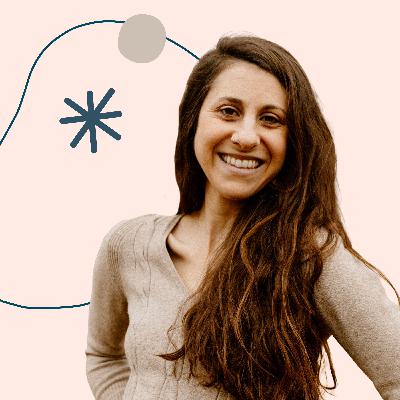





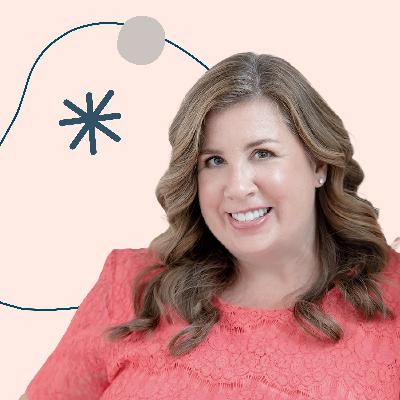


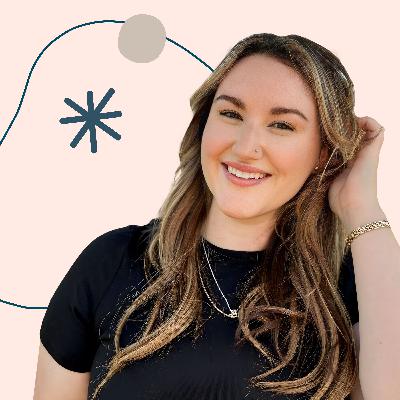

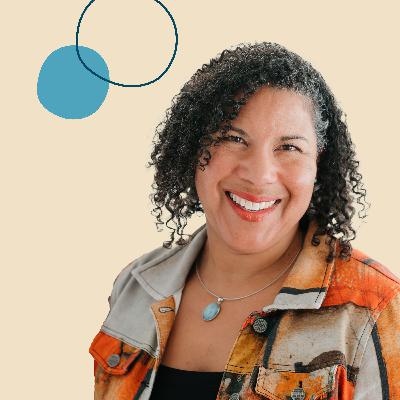
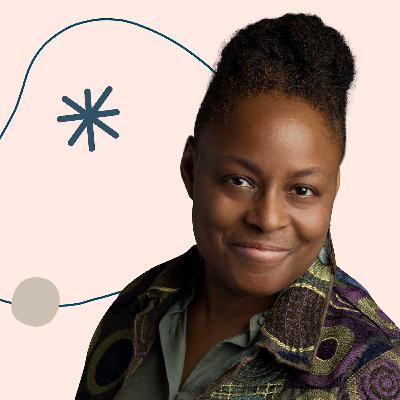
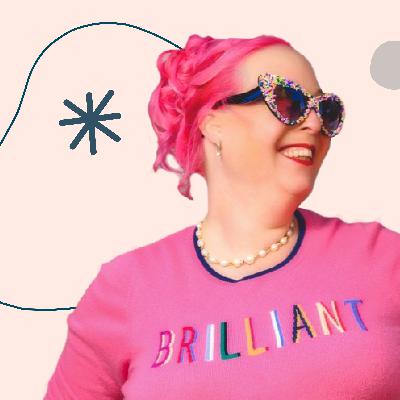
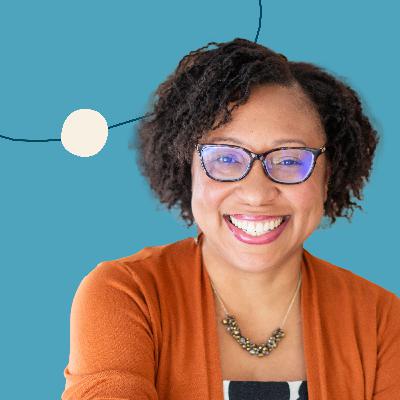
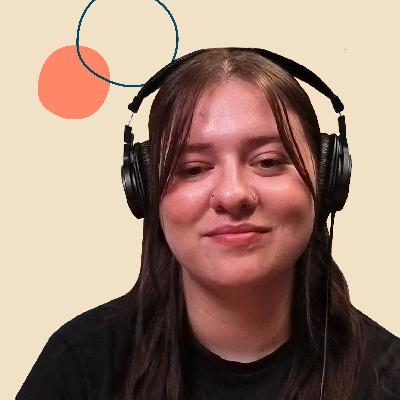
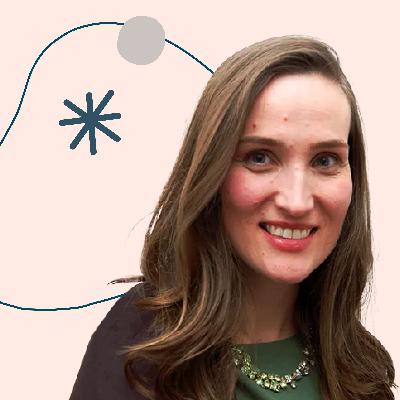




Yes. Yes yes yes.